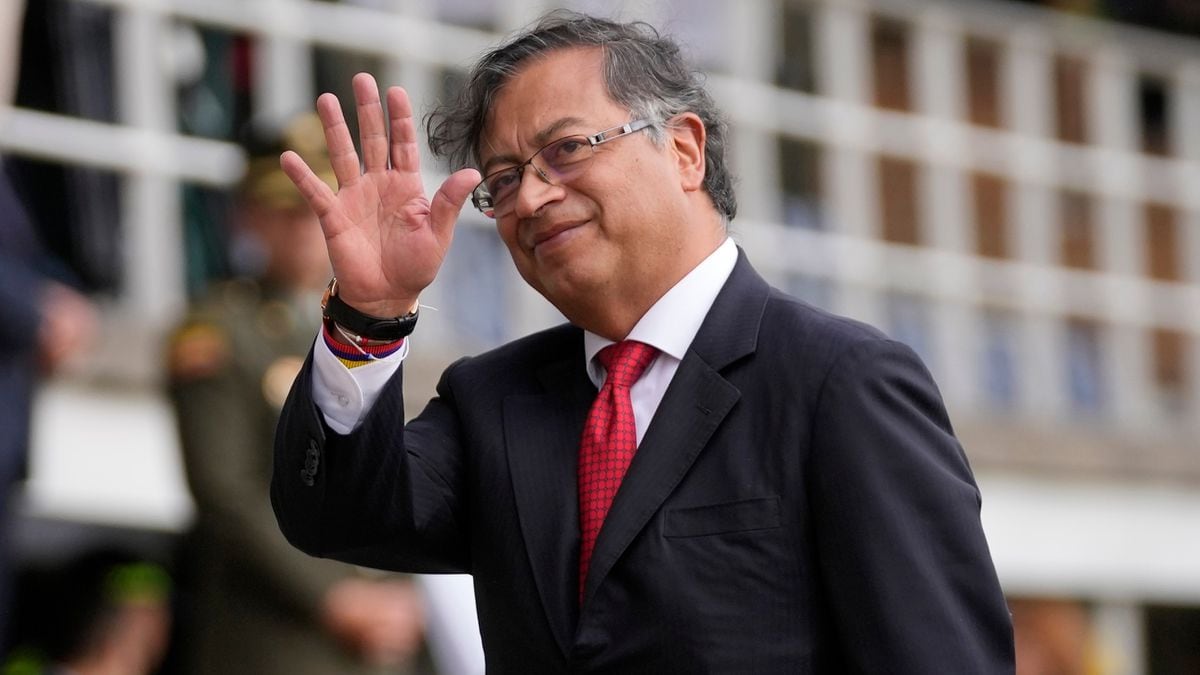France, after all, is not ungovernable.
Not even the National Assembly is in chaos.
Little more than a month will have sufficed to deny the predictions after the setback suffered by Emmanuel Macron in the legislative elections on June 19.
That day, the French president lost the absolute parliamentary majority that, in the previous five years, had allowed him to govern comfortably.
A month and a half later, the balance for the centrist Macron, re-elected in the presidential elections in April, is less gloomy.
While the President of the Republic saw his colleagues Mario Draghi in Italy and Boris Johnson in the United Kingdom fall, he has managed to pass, with the support of the right-wing Republicans (LR), the first laws of the legislature, authentic test for the governability of the country.
"For now, France is not ungovernable," Manuel Bompard, deputy of Jean-Luc Mélenchon's anti-capitalist and Eurosceptic party La France Insumisa (LFI), admitted last week in the corridors of the National Assembly.
“The reason is that there is a kind of heteroclite majority between LREM [the former acronym for Macron's party, now Renaissance] and The Republicans.
The question is whether this majority is durable.
The groups that support Macron (Renaissance, Modem, Horizons) have shrunk and act with more humility: they number 250 deputies, far from the absolute majority threshold of 289. The left, previously divided, has united and expanded its domains: the NUPES or New Popular Ecological and Social Union (the alliance formed by La Francia Insumisa, socialists, environmentalists and communists) adds 151 seats.
And the extreme right of the National Rally (RN) is no longer a small group without the right to a parliamentary group: it now has 89 parliamentarians.
And the Republicans, 62.
The political center of gravity has shifted.
From the Elysee Palace, the presidential seat on the right bank of the Seine, to the Bourbon Palace, seat of the Assembly, on the left bank.
Tuesday, August 2 was the day of the last control session of the Government before the summer break in the National Assembly, and from the press gallery of the hemicycle the new political landscape unfolded: a diminished center, expanding extremes, and a constant ruckus that gives rise to conflicting readings.
Some complain about the
show
and the interventions designed to feed social networks.
Others believe that it is time for France to have a vibrant parliamentary life.
"It's been a long time since nothing happened in the National Assembly, and finally something happens," Marine Le Pen, leader of the RN, celebrated before journalists.
"Now this is where the political battle is taking place."
In this start of the XVI legislature of the Fifth Republic, there has been a motion of censure from the left: the prime minister, Élisabeth Borne, easily overcame it.
Nor controversies such as the use of the tie: Le Pen forces his deputies to wear it, on the left it is unusual and a leader from the right proposed that it be mandatory in the chamber.
There have also been significant economic debates: does France, one of the western countries with the greatest fiscal pressure, need to imitate its neighbors such as Spain and adopt a tax for companies that, like the oil companies, are making huge profits during the crisis?
Macron's (and the right's) response: no.
The main laws adopted in the last month are three.
The first puts an end to the health exception legislation in the face of the coronavirus.
The second seeks to strengthen the purchasing power of the French in the face of inflation and includes, among other measures, an increase in pensions and subsidies, the freezing of the price of gas and a ceiling for electricity, the reduction of the price of fuel at gas stations, the facilities to work more hours earning more and the elimination of the tax for public radio and television.
The third is a rectification of the budget to meet these expenses and other measures in the face of rising prices.
The adoption of these laws has been laborious.
The president's supporters have had to seek consensus, something to which the macronist roller of the previous five-year period was not used to.
There has been anger, amendments that have left the Government in the minority and complaints about show politics.
But France has not stopped.
The historian Jean Garrigues summed it up a few days ago on the
France Culture
channel : “It is an opportunity to demonstrate that within the framework of Parliament, that is, of deliberation and regulated discrepancy, it is possible to be effective and reform”.
Stéphane Vojetta, a Macronist deputy for the constituency that includes French residents in Spain, points out: “Sometimes it is a bit chaotic, we have spent entire nights to adopt these laws, La Francia Insumisa in particular tries to stop the parliamentary process.
But the reality is that we are advancing according to the planned rhythm”.
The Macronists have relied on the fourth group: LR, the traditional right of President Nicolas Sarkozy, today close to Macron.
Despite its progressive collapse in the last elections, this party has optimized its scant parliamentary strength and has assumed a key role in governance.
“It is not an alliance, but rather an alignment of visions on what we think is good for France”, explains Vojetta.
"Often there is no negotiation: we find out at the time of the vote who will vote for and who against."
After losing the majority in the legislative elections, one of Macron's options was to negotiate a government coalition like those of Spain, Italy or Germany.
He dismissed it.
He kept Prime Minister Borne.
He trusted that, by negotiating each law, he would find the necessary votes.
For now it works.
It is not certain that he will do so when the National Assembly tackles more controversial proposals such as pension reform.
As there is no formal alliance, everything can blow up at any time.
The alternative is to create a true coalition government.
Or dissolve Parliament and call new elections to seek a stronger majority.
“Many thought, or expected a month ago, that there would inevitably be a dissolution,” observes Deputy Vojetta.
"But now I think we can last like this for five years."
Macron must deal with three oppositions.
The Republicans, who control the Senate, as Macron's influential crutch.
Le Pen's RN, who for the first time touches real power with vice presidencies of the Chamber, strives to present an institutional image and away from the noise: he is already thinking about the 2027 presidential elections. The left of NUPES plays a more classic role of opposition , albeit with internal differences.
A more constructive line in the socialist camp, and aligned with Macron in Atlanticist and Europeanist foreign policy.
And another, that of LFI contrary to NATO and complacent with China or Russia, as well as more forceful in the forms and conducive to blows of effect.
“There is no
show
”, replies Deputy Bompard, from LFI.
“We do our job.
They have chosen us to defend some ideas.
We have been elected to oppose Mrs Borne when she says she will raise her retirement age to 65.
Those who have elected us do not expect us to applaud them.
In a democracy there is a majority and an opposition.
Follow all the international information on
and
, or in
our weekly newsletter
.
50% off
Subscribe to continue reading
read without limits
Keep reading
I'm already a subscriber

/cloudfront-eu-central-1.images.arcpublishing.com/prisa/EF2WMP22L2K36EVFG3B5K4FXMU.jpg)
/cloudfront-eu-central-1.images.arcpublishing.com/prisa/YTHAYNQJRHOBVAPYHAT3GYMEHU.jpg)






